Russia and the West: a NEW COLD WAR?
What you want to understand… 🤔
- What actually is a cold war?
- Do the West and Putin’s Russia have different ideologies and models of society ?
- Does the rivalry go beyond simple rhetoric fights and diplomatic tensions? If yes, how?
- Don’t we forget China in this equation?
In February 2016, the Russian Prime Minister Dmitry Medvedev described the unfriendly relationship between Russia and the West as “a new cold war”.
The 1947-1989 conflict that opposed the West bloc, led by the US, and the East bloc, led by the USSR, was the first occurrence of a cold war in the world. Raymond Aron’s formula “Impossible peace, improbable war”(Le Grand Schisme, 1948) is the one that best defines what a cold war is.
A cold war is a global ideological conflict with permanent military threats but short of overt and direct military confrontations.
The West includes the United States (US), the European Union (EU) and the North Atlantic Treaty Organisation (NATO).
The current context is much more different than after World War II. Indeed, nowadays the relationship between Russia and the West is unbalanced in favour of the latter that has an overall hold on international institutions. Russia’s position is the one of an outsider trying to restore its past greatness. However, in our multipolar world China is progressively gaining power at the expenses of the hegemony that the US gained/reinforced at the end of the Cold War.
I. Ideological confrontation ?
A. Russia adopted the US model as of 1991
At the end of the cold war, the American way of life progressively spread all over the world. It was characterised by mass consumption and mass entertainment embodied by the Hollywood movie industry. Besides, the democratisation of the Internet and social media has facilitated the opening up of the Russian society to the dominant American culture.

From an economic standpoint, the collapse of the USSR entailed a shift from command economy and state interventionism to market economy based on capitalism and liberalism promoted by the US. There was a large wave of privatizations during which oligarchs took over national economic assets and made large profits thanks to deregulation measures.

Regarding Russian politics, the 1993 Constitution was inspired by the French one and included principles promoted at the time by the Western bloc such as human rights, democracy, separation of powers and transparency. This trend was initiated in 1985 by the Soviet leader Mikhail Gorbachev. He wanted to reform the USSR with his policy of “glasnost” (openness) and “perestroika” (restructuring).
Currently Russia has no ideological alternative to the American cultural, economic and political model. Besides, an ideological conflict requires a broad popular support. Given that the world has been Americanised, it seems improbable that Russia will wage an ideological war against the West since it wouldn’t enjoy a wide popular support both domestically and abroad. Therefore, the current situation cannot be qualified as a Cold War for it lacks the ideological dimension that was found in the second half of the 20th century.
B. Opposition of style and political manipulations
BUT, despite apparent similarities with the Western model, Russia’s style of governance adopts authoritarian practices. According to the Democracy Index developed by the Economist, Russia has been an authoritarian regime for the past two decades.

(not the 2020 version of the map because we deem it to be flawed due to exceptional covid-19 restrictions on people’s liberties)
Indeed, political opponents are regularly put out of the race, like Alexeï Navalny (almost-3-year sentence allegedly for financial fraud and other minor motives), and Putin’s party “United Russia” strongly holds power. In addition, Russia supports authoritarian regimes, which are criticized by the West, like Alexander Lukashenko’s Belorussia. Regular demonstrations denounce Putin’s corruption and authoritarianism, highlighting once again Russia’s inability to muster enough support to wage a global ideological war. Besides, a 2020-constitutional referendum has enabled Putin to run again for two additional six-year presidential terms: he virtually can rule over Russia until he is 86 years old. Moreover, a law passed in November 2020 gave him, and all other former Russian presidents, a judicial immunity for the rest of his life.
(However, in July 2020 Valdimir Putin still enjoyed an approval rate of 60% according to the Levada independent polling centre. His popularity surged following Russia’s interventions in Ukraine and Syria because many Russians associate it to a progressive restoration of Russia’s greatness on the international stage. Nonetheless, more and more people don’t hesitate to show discontent about his policies. Indeed, a Russian middle class is emerging with higher levels of education and political awareness as well as with a willingness to participate in the Russian political life.)
Furthermore, Russia attempts to undermine the stability of the Western political system. For instance, in 2016 and 2020 it carried out campaigns of fake-news and polarization in favour of Donald Trump’s candidacy for the White House. In fact, Trump was considered as the one who could undermine the western unity since he strongly disapproved of multilateral organisations like NATO. Besides, Moscow seeks to sow mistrust and disorder in Europe. For example, it illegally supported the Brexit assuming that the United Kingdom absence would weaken the EU. Moreover, Russia endorses right-wing and euro-sceptic European actors like the Hungarian President Viktor Orban or the French Rassemblement National.
II. Frozen diplomatic relations and military tensions ?
A. Rhetoric fight and diplomatic tensions
The current situation between Russia and the West is symbolised by verbal jousting between their leaders and by increasing diplomatic tensions. After the ambiguous Trump’s rhetoric with regard to the Russian leader, the aggressive US rhetoric has resumed with the presidency of Joe Biden. At the last Munich Security Conference the US President said that “Putin seeks to weaken the European project and our NATO alliance.” In an ABC News interview in March 2021, he accused President Putin of being “a killer” and that he will “pay the price” for what he has done. To the many accusations they have undergone for years, Russian leaders have responded by denouncing the US hypocrisy in particular regarding the racism in the US society and the disastrous US interventions in the Middle East. These tensions peaked in April 2021 with the expulsions of Russian diplomats by the US and the Czech Republic. It was met with Russian retaliating measures.
B. Russia’s expansion of its zone of influence
Russia’s expansion is noticeable in Africa and in the Central African Republic in particular. The Central African national army is now trained by the Wagner group that also secures hidden interests of high public servants. Vladimir Putin has also used his veto in the UN Security Council to end the embargo on arms deliveries to the Central African Republic. Russia seeks to obtain mining contracts to exploit Central Africa’s gold, diamonds and wood.

The Russian presence in Syria is notably motivated by the opportunity to project Russian forces on Mediterranean shores, like in Libya, by using the Syrian port of Tartus that has become a Russian naval base. Besides, Syria witnessed an indirect confrontation between Russia, that bombs rebels opposed to Bashar al-Assad’s regime, and the US-led coalition that fights terrorists and supports the rebels. This situation is comparable to the one of the 1980s in Afghanistan when Soviet forces fought against the mujahedeen who were supported by the US.
In the Asia-Pacific region, Russia endeavours to expand its influence by using its most important Asian partner, Vietnam, as a gateway to renew relations with other Asian countries (it is worth noting that Vietnam is also a major US ally). Russia is already selling them weapons: in 2019, 60% of its global arm sales were destined to the Asia-Pacific region. Moreover, it gradually increases its military presence there by reinforcing the Russian Pacific Fleet with 70 new warships by 2026. It is part of Vladimir Putin’s plan to turn Russia back into a global superpower.
However, Russia’s main focus remains on its “near abroad” i.e. the former Soviet Republics in Eastern Europe and Central Asia.
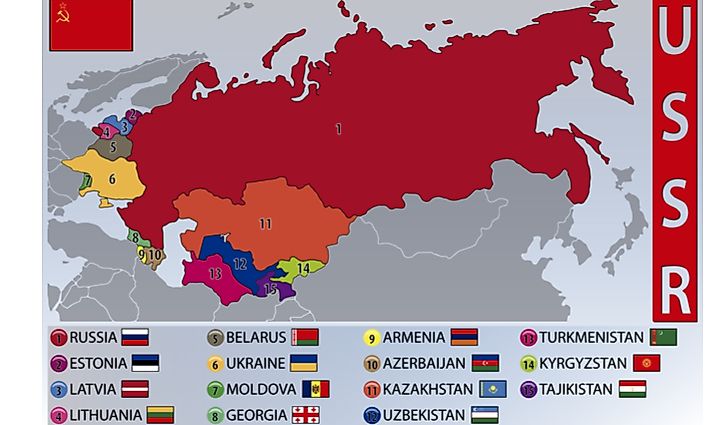
For instance, the Commonwealth of Independent States (CIS) created in 1991, seeks to promote cooperation in political, military, criminal and economic affairs. It allows Russia to maintain a great influence on its neighbours and utilize their resources at its profits. Russia’s borders have always been a factor of concern and even insecurity according to the US diplomat George Kenna. That’s why Russia intervened in Chechenia (1994-1996 and 1999-2009), Georgia (2008) and more recently in Ukraine (2014).
C. Western countries’ expansion through NATO and the Eastern Partnership
Relations with NATO started to deteriorate in 2005 and 2006 when dialogues between NATO and Ukraine and Georgia intensified. These countries are considered as a “privileged zone of interest” for Russia and a rapprochement with the West is felt as a direct provocation. After Russia’s invasion of Crimea (2014), NATO reinforced its presence in Poland and in the Baltic States. It also increased its members’ military budget to 2% of their GDP. In addition, the EU imposed economic and financial sanctions that are still in place today.


Through the Eastern Partnership, created in 2009, the EU’s influence is spreading in Eastern Europe and in the Caucasus. The goal is to promote cooperation, economic liberalisation and democracy. However, there is an ambiguity: is this policy a first step towards an EU integration or is it just a sort of “good neighbour policy”. Anyway, Russia sees the eastward expansion of the western influence as a zero-sum game. It may lead to an escalation of tensions due to Russia’s willingness to maintain control over its “near abroad”.
D. Technological domination and arms race
The current technological and military competition between Russia and the West takes various forms. For instance, in a propaganda move, Russia claimed to be the first country that has found a vaccine for the Covid, the Sputnik vaccine.
Regarding spatial conquest, given that the International Space Station will stop its activities in 2024, a Russian Orbital Space Station is planned to be launched in 2025 while the NASA is cooperating with Space X to plant the US flag on Mars.

A major theatre of confrontation in this tense relationship between Russia and the West is the cyber space. Indeed, it is a privileged means of action for Russia since hackers are not easily identified which reduces the probability of a direct military conflict.
There is a current arm race in which Russia and the US, as well as China, are developing hypersonic weapons, thus making the risk of a nuclear conflict more and more present. Indeed, the US budget for the hypersonic weapon program amounts to roughly $3.5 billion.
Furthermore, since Donald Trump left the Intermediate-Range Nuclear Forces Treaty (INF) in August 2019, both countries have been producing and testing intermediate-range missiles and the US is planning on installing some in Japan and South Korea. Nonetheless, in February 2021 the new-START treaty, which is a nuclear arms reduction treaty between the US and Russia, has been extended until 2026.
III. Are we heading towards a global confrontation ?
Russia can take advantage of the multipolarity of the world at the expense of the US effort to maintain its global hegemony.
A. The enemy of my enemy is my friend…?
Russia could find an ally in China in its confrontation with the US. In fact, both the Trump and the Biden administrations called Russia and China their major power rivals and the principal opponents of the liberal and democratic order that the US leads. Russia and China struggle against US sanctions and have already agreed on reducing their dependence on the dollar. Besides, both cooperate on economic and security matters within the framework of the Shanghai Cooperation Organisation (SCO). We can also add that since 2007, China has used 15 times its veto power in the UN Security Council, and every time it was in cooperation with Russia.
However, according to Pierre Andrieu (former French ambassador in Tadjikistan, Moldavia and for the Eeastern Partnership, former co-president of the Minsk Group), so far they have endeavoured to maintain their sovereignty by not entering into any formal alliance. Moreover, even though trade exchanges between the two are substantial, Russia is more and more confined to a role of oil, gas and weapon technology supplier. In addition, China extends its zone of influence over the Russian one with the Belt and Road Initiative.
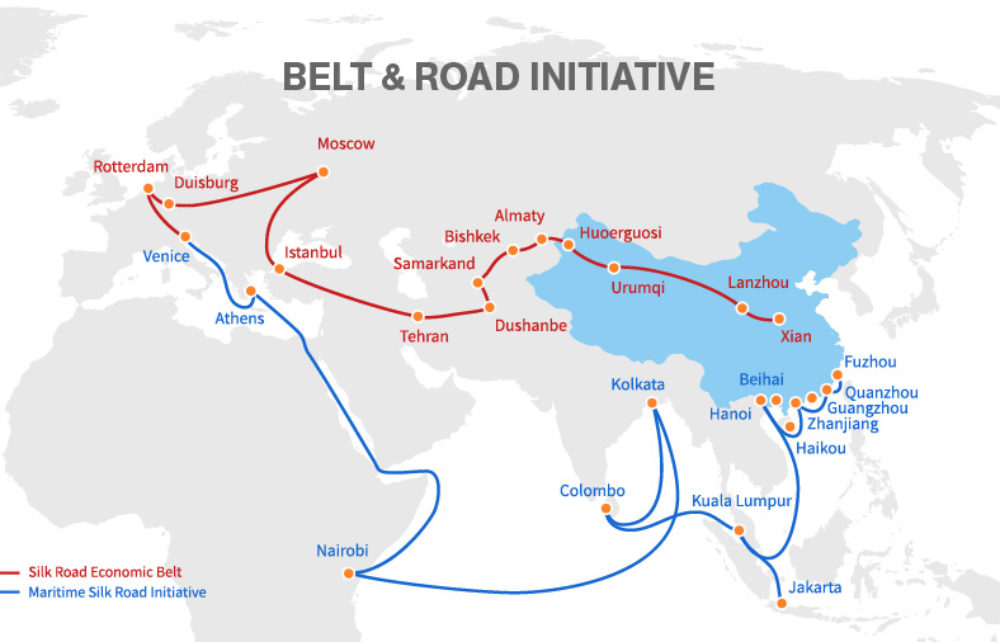
B. Chinese involvement leading to an internationalisation?
China enjoys economic leverage almost everywhere on the globe. If it explicitly enters a confrontation similar to the 20th-century Cold War, then it may force its international partners to align themselves either with it or against it (i.e. with the West). It would result in the emergence of a bipolar world. However, it would require an ideological opposition and China is in the same position as Russia: it has no popular alternative ideological model and its soft power still has yet to prove its worth.
Conclusion
In order for a confrontation to turn into a cold war, it has to be ideological, military threatening and global. According to what we have discussed, we can conclude that the current confrontation between Russia and the West lacks the ideological component even though there is a significant opposition of style and Russian attempts to undermine the Western political model. However, there are important diplomatic and military tensions that are characterised by rhetoric attacks, projects to expand their respective zone of influence and technological and arm races. Therefore the threat of a military conflict is more and more realistic, like it was the case under the Reagan presidency. Even though there are some aspects similar to the 20th-century Cold War, the current confrontation between Russia and the West lacks a global dimension that is linked to Russia’s inability to gather popular support with a different model of society. A Chinese involvement in this conflict could help internationalise it and make it more visible. Indeed, China is more influent than Russia that still endeavours to restore its past greatness. China currently represents the main challenger to the US hegemony.
Therefore, the question we ought to ask ourselves is probably: How will Russia position itself in the cold war that is looming between the US and China? The answer is not obvious as there is room for cooperation with the US regarding for instance global warming, where Russia is on the frontline, or the reestablishment of the Iran nuclear deal, in which they can have common interests.
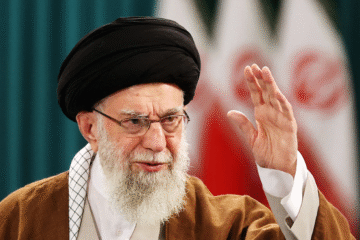
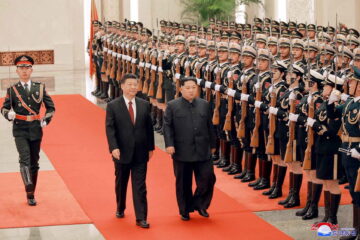
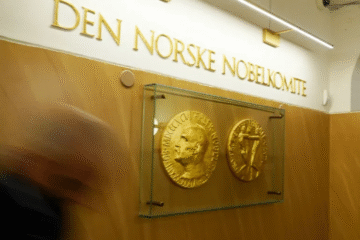
8 Comments
myhome · 13 February 2023 at 6:32 pm
I agree with your point of view, your article has given me a lot of help and benefited me a lot. Thanks. Hope you continue to write such excellent articles.
From Clinton to Biden: a look back on 30 years of US leadership – geopol-trotters · 15 April 2023 at 5:31 am
[…] antagonizing China and Russia, the US administration embraces a “Cold War mentality” according to China. In fact, the US […]
TURKEY and RUSSIA : a strategic alliance ? - geopol-trotters · 4 February 2023 at 4:15 pm
[…] pan-Turkic Eurasian strategy may threaten Russia’s influence in its Near Abroad. Indeed, Turkey is trying to establish special economic, political, military and cultural ties with […]
Economic Development and Democracy: how one affects the other - geopol-trotters · 6 November 2022 at 11:25 am
[…] makes it easier to be part of the global economic order. As a matter of fact, since the end of the Cold War, the Western political and economic model has prevailed. Let’s take the case of the 15 Republics […]
History of China and the World since 1949 - geopol-trotters · 3 November 2022 at 6:43 am
[…] China’s global influence is also limited by its army’s inability (for the moment) to compete with occidental armed forces. Even though it is the biggest army in the world with a total number of soldiers amounting to 2.4 million, its technological and logistical capacities don’t match yet those of the USA and Japan. Nonetheless, the time when China will vie with western military powers can’t be far off… It is building aircraft-carriers and nuclear submarines and takes advantage of Russian technologies and military equipment within the framework of the Shanghai Cooperation Organisation. […]
[Part 3] Why did the US fail in Afghanistan (2001-2021) - geopol-trotters · 17 May 2022 at 11:06 am
[…] these countries because it didn’t want its privileged zone of influence in Central Asia (its “near abroad”), and especially Uzbekistan and Tajikistan, to become destabilised by the Islamist influence of its […]
Wars in Afghanistan since 1979 and the recent US failure [Part 3] - geopol-trotters · 3 April 2022 at 12:12 pm
[…] these countries because it didn’t want its privileged zone of influence in Central Asia (its “near abroad”), and especially Uzbekistan and Tajikistan, to become destabilised by the Islamist influence of its […]
Wars in Afghanistan since 1979 and the recent US failure - geopol-trotters · 18 September 2021 at 3:28 pm
[…] these countries because it didn’t want its privileged zone of influence in Central Asia (its “near abroad”), and especially Uzbekistan and Tajikistan, to become destabilised by the Islamist influence of its […]